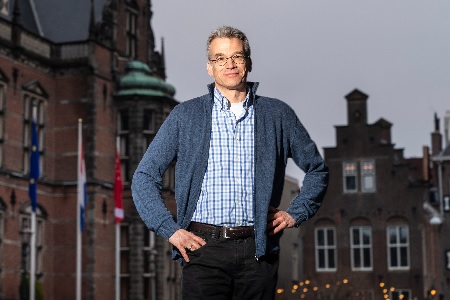Our society must end its addiction to oil and gas. This means that we need a new source of hydrocarbons, the carbon compounds from which fuels and many fossil-based materials are made. Some two years ago, Matthias Heinemann, Professor of Biochemistry at the University of Groningen, began wondering how the Netherlands could get involved in realizing the shift to fossil-free carbon. He is now part of a small team that leads a large consortium of knowledge institutes and partners from industry that has put forward a proposal that could revolutionize the chemical industry. The FutureCarbonNL consortiumproposes to make valuable chemicals from the carbon dioxide found in waste gases and even from that found in the air.
A biochemist may seem an unlikely champion for a greener chemical industry. ‘If our proposal is funded, I am unlikely to benefit from it,’ Heinemann acknowledges. His research interest lies in the metabolism of microorganisms, which has very little to do with carbon capture and utilization, the general idea behind the €663 million proposal for the Dutch National Growth Fund, a government fund that aims to increase the Dutch economic earning power.
Heinemann became interested in this area when he heard that the EU wanted to invest hundreds of millions of euros in the province of Groningen to compensate for the loss of jobs in the Groningen fossil industry. ‘I started to think about how all this money could be invested in the best possible way,’ recalls Heinemann. The best option, he felt, would be to exploit a new source of carbon. ‘In a green economy, we have to replace fossil carbon in our daily products with a green alternative. Obtaining carbons through recycling is not enough, and using biomass as a carbon source would compete with food production.’
Read the full article.

